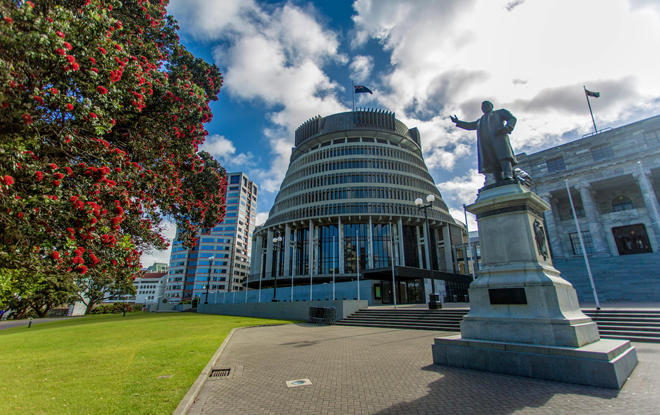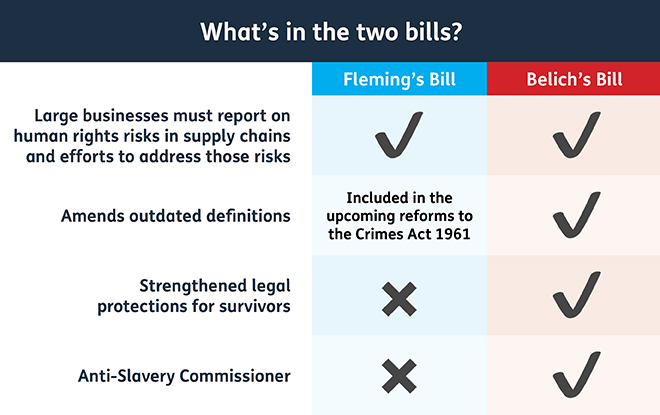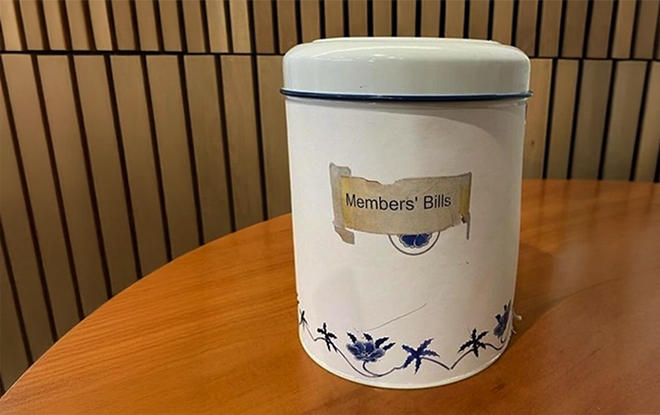Imagine being forced to work or marry because the consequences are too severe if you say no. That's the reality for an estimated 50 million people around the world today in situations of modern slavery. ‘Modern slavery’ is a term we use to refer to situations of exploitation that a person can’t refuse or leave because of violence, coercion, or deception.
Some people experiencing this are part of our communities here in Aotearoa. And many of us are connected through everyday things we buy, use, and eat. Bananas, flat whites, t-shirts, and laptops have all been linked to the exploitation of children, women, and men around the world.
When it comes to taking action against this serious injustice, Aotearoa has some catching up to do. The 2024 Trafficking in Person’s Report gave Aotearoa an unimpressive Tier 2 ranking, signaling that we’re not meeting baseline requirements to tackle the exploitation of people.
But this week we celebrate a long-awaited announcement from the Government, and we're hopeful the momentum will carry through to two promising modern slavery bills awaiting action in Parliament.
What did the Government announce?
The Government announced they’ll be amending the definition of child trafficking so that prosecutors no longer need to prove that coercion or deception occurred when the trafficking victim is a minor.
What does that actually mean?
It means prosecuting child trafficking cases will get easier. For years, trafficking cases have been notoriously hard to prosecute in Aotearoa.
As part of our submission to the Justice Select Committee earlier this year, we shared the story of Sak and Tawan. These are two boys who recently saw justice when the individual responsible for trafficking them was convicted. But, if they had been trafficked into Aotearoa instead of Thailand, the chances of conviction would likely have been much lower. This is in part due to differences in our legal definitions of trafficking.
This week’s announcement takes us one step closer to justice. Not only will our legislation be more aligned to important international standards, but it will be easier for traffickers to be held more accountable for their actions.
How did this announcement come about?
This announcement is the result of years of advocacy from many passionate individuals and organisations across the sector. But it wasn’t just us, it was you too.
Earlier this year, we informed you - our supporters, that submissions had opened for a crucial Bill aimed at strengthening penalties for traffickers. Many of you submitted in support of the proposed changes, while also advocating for another essential improvement to the same section of the Crimes Act – strengthening the child trafficking definition. These submissions made up 65% of the total received by the Justice Select Committee and the Minister of Justice made it clear in his Press Release that these submissions helped drive this week’s announcement: “This addresses issues raised by submitters on Greg Fleming MP’s Member’s Bill currently before the House,” - Minister Paul Goldsmith.
It’s a reminder for us all that when we raise our voices, we can effect change.

Two bills in the Parliamentary Ballot shows us that cross-party support for tackling exploitation exists, now we need cross-party action! Photo: @xfly / Pexels
We’ve taken a big step forward this week. What’s next?
This week’s announcement was a massive win. But Aotearoa still has some catching up to do. Other countries have already taken action to stop exploitation in supply chains, like banning imports from certain at-risk regions, or mandating businesses address issues in their supply chains. Meanwhile, countries like Australia and the UK have independent Anti-Slavery Commissioners to lead efforts against modern slavery.
Two bills, two parties, one shared goal
There are two private member’s bills aimed at addressing different aspects of modern slavery in the Parliamentary Ballot. Parts of both bills are nearly identical, signaling broad support for tackling slavery exists.
In April, National Party MP Greg Fleming placed the Modern Slavery Reporting Bill into the Parliamentary ballot. His bill seeks to introduce a requirement for large businesses to report on modern slavery risk factors in their supply chain, and their efforts to address these risks.
Then, in July, Labour Party MP Camilla Belich placed the Modern Slavery Bill into the Parliamentary ballot. Belich’s bill includes many similarities with Fleming’s Bill, but also introduces additional measures.
We know that Aotearoa needs to step up it’s response to modern slavery. The overlap between the two bills suggests both of Aotearoa’s major political parties agree. We’ve got shared political will, next we need shared action.

Why do politicians need to work together?
These two bills are positive steps forward, but the fact they’re private members’ bills means progress from here is likely to be slow.
Private Members’ bills are placed into a ballot (a literal biscuit tin in Aotearoa). Bills are then drawn out at random, when there’s space on the Order Paper on a Member’s Day. Each bill has only a 3–5% chance of being drawn in the ballot - unless, and here’s the kicker, 61 non-ministers back it. In that case, it skips the queue entirely and goes straight through to the Parliamentary Order Paper.
To get 61 non-ministers to endorse a bill requires cross-party support, meaning political parties agreeing to collaborate to expediate the process. This signals an issue like exploitation is too important to be a political football.

Private Members’ bills are drawn from a literal biscuit tin – a quirky but important way new laws can begin their journey through Parliament.
National + Labour, let’s keep putting people before politics
While neither bill is a ‘silver bullet’ that fully addresses all the gaps in New Zealand’s response to trafficking and modern slavery, they are a tangible opportunity for change to happen now. Delaying progress would be disappointing for the people currently enduring some of the worst forms of exploitation, and disappointing for those who have advocated long and hard for change. Our focus, and the focus of our political parties, must remain on these individuals; the woman whose passport has been taken and is forced to work, the child who’s still stitching clothes for export, the man working 18-hour days at sea for little pay.
Fleming and Belich have both publicly signalled a willingness to work together. We all agree that Aotearoa needs strong, enforceable legislation to help address exploitation.
National and Labour, let’s put politics aside. After so many years of parliamentary discussion, it’s time to move beyond words. Back one bill, and let’s finally get it done - together.